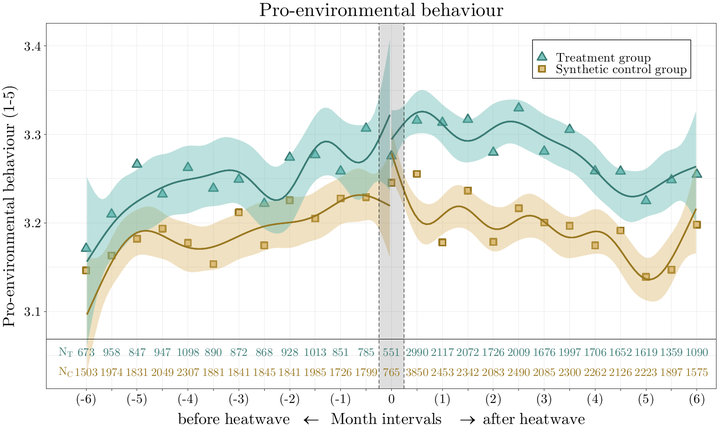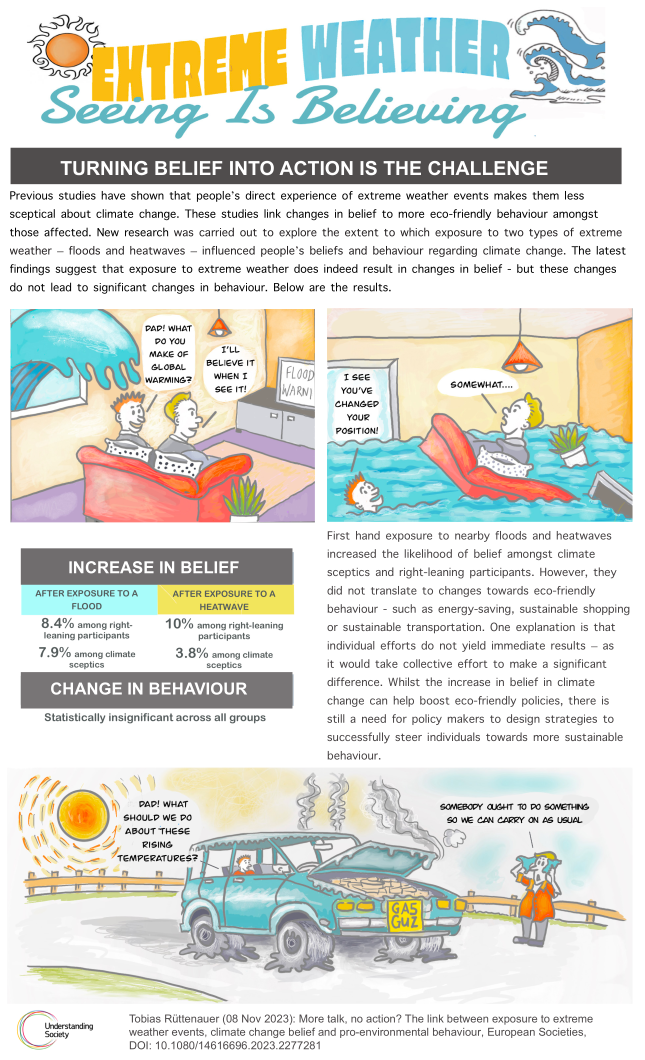More talk, no action? The link between exposure to extreme weather events, climate change belief and pro-environmental behaviour

Abstract
Previous research has shown a link between extreme weather events and people’s beliefs about climate change and their pro-environmental behaviour. This indicates that people may become more environmentally friendly amid increasing extreme weather events. Still, the influence of experiencing extreme weather events on actual behaviour has rarely been tested with large-scale individual-level data and longitudinal methods. This study links panel data from 35,678 individuals to floods across England and heatwaves across the UK and applies within-person estimators to account for pre-existing differences between affected and unaffected individuals. Results reveal that individuals are more likely to believe in climate change after being affected by a geographically proximate flood or a temporally proximate heatwave. This association is stronger among initially right-leaning partisans and those initially more sceptic about the existence of climate change, thereby indicating attitudinal updating due to experiential learning. However, those exposed to extreme weather events do not change their environmental behaviour such as energy saving, sustainable shopping or mode of transportation. Even among those who are more likely to believe in climate change, people’s behaviour does not react to extreme weather events.
